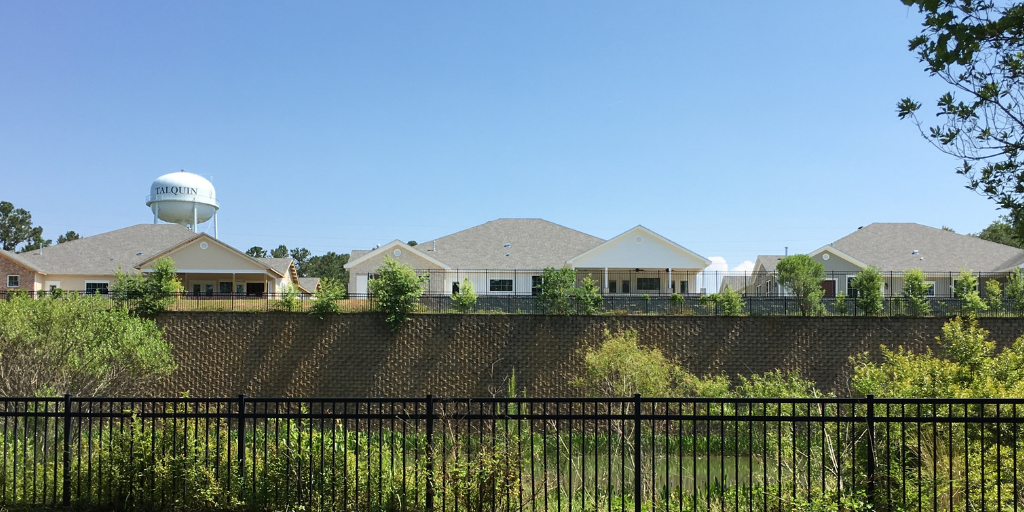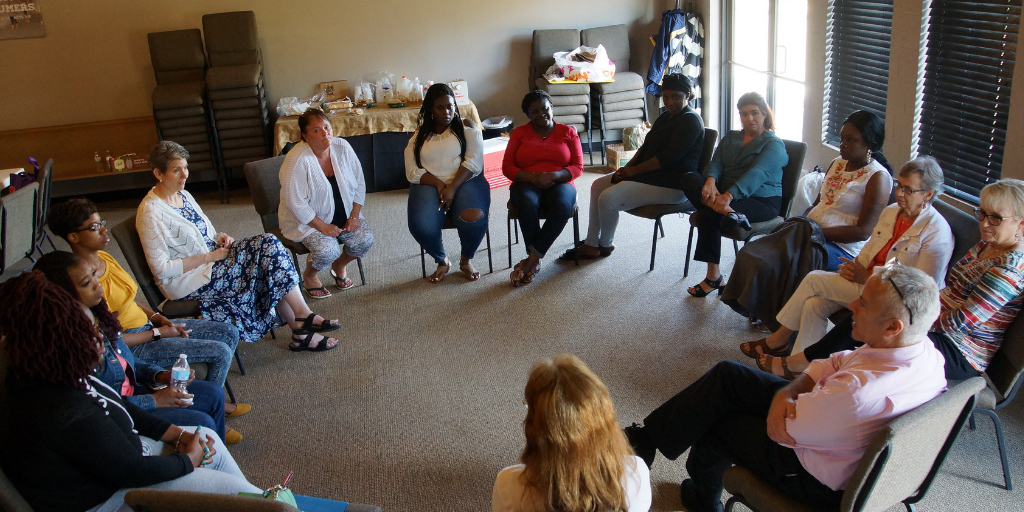The Potential of ‘Care Partners’ and Small House Models
Villas at Killearn Lakes (“the Villas”) has been working with PHI to build small homes for older people in the Tallahassee, Florida neighborhood of Killearn Lakes Plantation. These assisted living homes are built on the values of mutuality, personhood, choice, and quality. Twelve older people will be moving into a small home, which is an intentional community based upon the rhythms, choices, and preferences of each person. The first home opened in June 2019. When completed, there will be nine small homes as part of the Villas at Killearn Lakes neighborhood.
Here are a few dimensions of this project that speak to the potential of new models in direct care.
Empowerment
A critical component of these homes is the empowerment of direct care staff, who are referred to as “care partners.” Care partners work in fully expanded roles, doing all the work of the homes while partnering with older people. The Villas welcomes older people who embody a range of living and care needs, with the goal of supporting well-being and meaningful engagement for each individual. In order to live the values, care partners have authority to run the homes and hold sacred the rhythms and preferences of the older people living there.
Coaches
Care partners report to a coaching leader (“guide”) and collaborate with clinical and operational coaches to develop confidence and competence in the Villas model. The coaches have received education and training through PHI’s Coaching Supervision® approach with the goal of moving power to the care partner and the older person. The coaches support care partners in developing effective skills in critical thinking, communication, and problem solving to be effective in this empowered small home model.
Core beliefs & roles
To be successful, Villas’ leaders have started with the belief that care partners can be effective in this new model of care. The care partner goes beyond the traditional roles of CNA or Resident Assistant in that they will fulfill an expanded and empowered set of roles. Care partners take on all of the work of the home (cooking, housekeeping, and laundry) and support older people in meeting their personal care needs and encouraging meaningful engagement.
Training
To prepare care partners for these roles in the Villas, these workers participate in “The Villas Team Training” – an adult learner-centered approach that covers: person-directed living; coaching communication skills; a deep review of care partners’ job scope and responsibilities; and the definition of self-organized work teams and their implementation in the home. The program was developed and led by PHI in partnership with Villas at Killearn Lakes leadership. Care partners are also educated on culinary skills, as well as safe food handling and infection control in the homes. These rich and diverse skills are then practiced through a practicum in the homes.
This model challenges many long-held stereotypes of traditional long term care settings and comes up fresh with new opportunities for older adults to live good lives–and for direct are workers to have quality jobs.
Guiding Framework*
Vision
“To advance culture change and the small house movement through innovative philosophy, architecture, staffing patterns and service delivery that result in the provision of high quality personal care services.”
Mission
“To serve others by providing meaningful daily life assistance in a place they call home.”
Values
“Mutuality – Relationships that are reciprocal form care partnerships that engage residents, families, and staff in ways that create well-being for all.”
“Personhood – Those we serve will never have to abandon their dignity, identity, or personal preferences at the threshold.”
“Choice – As a community, we work together to respect the individual privilege of how we each choose to live today.”
“Quality – We will endeavor to provide the highest possible quality of life and care to those we serve.”
*Villas at Killearn Lakes








